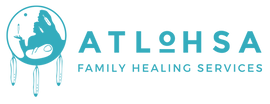Giiwitaabiwag is a community capacity building initiative that stems from the Giwetashkad Indigenous Homelessness Strategic Plan. The program’s mandate is to build capacity with service providers in the London region to deliver effective, culturally safe care with Indigenous peoples.
Who is the training for?
While we prioritize the housing and homelessness sector, Giiwitaabiwag training is available for anyone working with Indigenous peoples, directly or indirectly: frontline service providers, support staff, organizational leadership and governance bodies, businesses, and professionals working in the housing sector, justice systems, education systems, non-profits, and more. If you’re wondering if the training is for you, chances are it is! Please contact the team to learn more or discuss your needs.
What does Giiwitaabiwag mean?
‘Giiwitaabiwag’ is an Anishinaabemowin (Ojibwe language) word and concept meaning “returning to sit in a circle”. It has been said that when we all sit in a circle, we are all at the same level; none are placed higher than the rest. This teaching informs our approach to community capacity building and growing positive relationships with partner agencies so that Indigenous peoples experiencing homelessness, cultural dislocation and other social inequities can access improved, more culturally relevant services.
Why is this training needed?
Community consultations for the Giwetashkad Strategic Plan and further research to develop Giiwitaabiwag training modules found that many Indigenous peoples experiencing various forms of homelessness choose not to access non-Indigenous services due to experiences of racism, or those services not responding effectively to their specific needs. Giiwitaabiwag, part of Atlohsa’s Giwetashkad Indigenous Homelessness Team, is responding with Indigenous-led education and training that equips organizations with the knowledge and tools needed to adapt services appropriately. Together, we can ensure that all community service agencies are culturally safe and responsive spaces for Indigenous peoples to access the support they need.
Training Modules & Approach
Giiwitaabiwag uses Indigenous teaching and learning approaches, including interactive discussion, relationship building and exposure to cultural teachings. Sessions are available in-person at Atlohsa’s office on Richmond Street with a fee starting from $500.00 for groups of 8 to 18 people. Organizations may book multiple sessions.
Module 1: Definition of Indigenous Homelessness is a prerequisite for participating in further training and education opportunities. Groups can take the training modules separately, combine them into a full day training that includes the core content from both training modules, or request a custom training or education session based on consultation.

Module 1: Definition of Indigenous Homelessness
Prerequisite: None
Duration: 3 hours
Pre-Reading:
Module 1 provides a foundational context for understanding the current realities and social inequities that Indigenous peoples in Canada live with because of settler colonization. It is a prerequisite for all other courses offered through Giiwitaabiwag. Participants will:
- Review the history of Indigenous displacement and dispossession in Canada
- Explore Indigenous concepts of home and belonging
- Commit to a decolonized understanding of “homelessness”
- Work with the 12 Dimensions of Indigenous Homelessness

Module 2: Culturally Safe Care with Indigenous Peoples
Prerequisite: Module 1: Definition of Indigenous Homelessness
Duration: 3.5 hours
Pre-Reading:
- From Dispossession to Dependency, Arthur Manuel
- Disrupting Current Colonial Practices in the Immigration and Nonprofit Sector
Module 2 provides an examination of colonial power dynamics and the ways these are replicated in service-delivery. Participants will:
- Gain an introductory understanding of settler colonialism and the need for cultural safety in services
- Examine how personal identities (positionality) impact relationship-building and the ways we deliver services to Indigenous participants
- Explore culturally safe approaches and ways to pursue cultural safety within current workplaces
Module 2.1 (Expanded): Culturally Safe, Colonial Trauma Informed Care
Prerequisite: Module 1: Definition of Indigenous Homelessness
Duration: 7 hours (includes lunch)
Services cannot be culturally safe if they are not trauma informed. Module 2.1 is an extended version of Module 2 that includes an expanded context for understanding and addressing colonial trauma and its ongoing impacts on Indigenous peoples, families and communities.
More training and education opportunities
Please contact the team to discuss custom training and education opportunities, including sharing circles or an overview of Atlohsa’s programs and services.
BOOK A SESSION TODAY
Please complete the form below or email the Giiwitaabiwag team directly. The team will give you a call or guide you through the registration process via email.
What can I do if I am already registered for a training session?
We are looking forward to working together! Before you attend training, you should be familiar with a few things that we do not cover in training, including:
Which 3 local First Nations communities are nearby London?
- Deshkan Ziibiing (Chippewas of the Thames First Nation)
- Onyota’á:ka (Oneida Nation of the Thames)
- Munsee-Delaware Nation
What does ‘Indigenous’ mean in a Canadian context? (First Nations, Inuit, Metis)
- Terminology Guide from Queen’s University Office of Indigenous Initiatives
- The word Indigenous – CBC Kids (video)
You can also visit our site, Truth Comes Before Reconciliation, to do some self-guided learning about settler colonization and to increase your cultural awareness.
Finally, we encourage everyone to learn more about the Giwetashkad Indigenous Homelessness Strategy or our recent ARCH Study and Policy Recommendations to support alleviating Indigenous homelessness in London.
Support Indigenous Community
As we educate more service providers in our community, our Indigenous community members have better access to culturally relevant services. Please support this good work by giving today.


